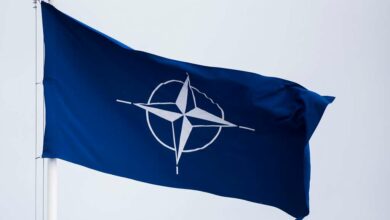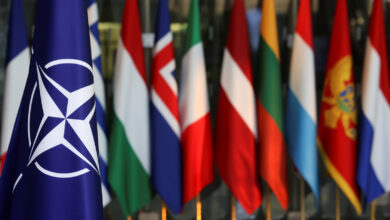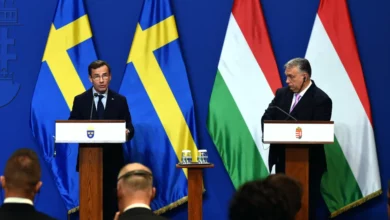Tripoli – The Libyan government accused NATO of bombing a residential neighborhood in the capital and killing civilians early Sunday, adding to its charges that the alliance is striking nonmilitary targets. At least four people, including two children, were reported killed.
It was not possible to independently verify the government’s account of what happened and NATO said it is investigating. The alliance has repeatedly insisted it tries hard to avoid killing civilians.
Whether they are confirmed accurate or not, the allegations likely give Muammar Qadhafi’s regime a fresh rallying point against the international intervention into Libya’s civil war.
Journalists based in the Libyan capital were rushed by government officials in the early hours of the morning to the destroyed building, which appeared to have been partially under construction.
Government spokesman Moussa Ibrahim wasn’t immediately able to provide the number of casualties, but said there were no military facilities anywhere near the damaged building.
Journalists at the scene who were later taken to a hospital were shown at least four people said to be killed in the strike, including the two young children. Foreign journalists in Tripoli are not allowed to travel and report freely and are almost always shadowed by government minders.
“There was intentional and deliberate targeting of the civilian houses,” said deputy foreign minister Khaled Kaim during a visit to the site shortly after reporters arrived. “This is another sign of the brutality of the West.”
A NATO mission spokesman in Naples, who spoke on condition of anonymity because of NATO regulations, said Sunday that the alliance is aware of the reports and is investigating. But he said at the moment NATO does not know where in Tripoli the alleged airstrike occurred.
The Qadhafi regime has made false claims in the past about NATO having caused civilian deaths, the spokesman added.
Meanwhile, there was heavy shelling Saturday night and Sunday morning in the port city of Misrata, 200km east of the capital. Muthana Issa, an official at Hikma hospital in Misrata, said there had been four killed and 16 wounded.
For weeks rebels had been bottled up in Misrata, one of a handful of toeholds they hold in western Libya. The eastern third of the country is under rebel control from their de facto capital, Benghazi. As NATO warplanes began stepping up attacks on Libyan government forces, bases and ammunition depots in recent days, the rebels in Misrata used the distraction to start their push out of the city toward Tripoli.
Rebel fighter Mohammed Khalil said a group of rebels was ambushed early Sunday morning by Qadhafi forces near Dafneya, west of Misrata.
He said the rebels fought all night, pushing forward toward the next major town of Zlitan, then retreated back toward Dafneya. Government troops encircled them overnight, then ambushed them in an open field with AK-47s and heavy machine guns at daybreak.
He said the fighting was intense, with the two sides as close as 50 meters from each other. Five rebels were killed in the ambush, he said.
On Friday, Libyan Prime Minister al-Baghdadi al-Mahmoudi accused NATO of a “new level of aggression,” and claimed that the military alliance intentionally targeted civilian buildings, including a hotel and a university. He has called on the United Nations to take action to stop NATO’s daily bombing runs.
Libya’s Health Ministry says 856 civilians have been killed in NATO airstrikes since they began in March. The figure could not be independently confirmed. Previous government tolls from individual strikes have proven to be exaggerated.
Late on Saturday, NATO announced that it had mistakenly struck a column of Libyan rebel vehicles in an airstrike near an eastern oil town two days earlier and expressed regret for any casualties that might have resulted.
The alliance has accidentally hit rebel forces before in its air campaign to protect civilians in the civil war between Qadhafi’s military and the fighters trying to end his more than four decades in power.
A coalition including France, Britain and the United States launched the first strikes against Qadhafi’s forces under a United Nations resolution to protect civilians on 19 March. NATO, which is joined by a number of Arab allies, assumed control of the air campaign over Libya on 31 March.




